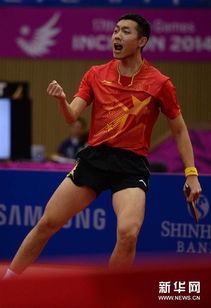现任乒乓球男队主教练
Elevating Your Table Tennis Men's Team: Insights from a Head Coach
Being a head coach for a table tennis men's team requires a blend of tactical expertise, strategic planning, and effective team management. Here are some insights and guidance for aspiring or current coaches looking to lead their teams to success.
Each player in your team brings a unique set of skills and strengths to the table. As a coach, your first task is to identify these strengths and tailor your coaching approach accordingly. Conduct thorough assessments of each player's playing style, strengths, weaknesses, and psychological disposition. This understanding will enable you to create personalized training plans and strategies for individual players.
While individual skills are essential, success in table tennis often hinges on the synergy within the team. Foster a culture of collaboration, mutual respect, and support among your players. Encourage them to learn from each other, share insights, and work together to overcome challenges. Team-building exercises, joint practice sessions, and open communication channels can significantly enhance team cohesion.
Table tennis is a dynamic sport that demands adaptability and versatility. Work with your players to develop a diverse range of playing styles, techniques, and strategies. Emphasize the importance of tactical flexibility, quick decision-making, and the ability to adjust to different opponents and match situations. Regularly analyze match footage, study opponents' playing styles, and devise counter-strategies to stay ahead of the game.

Physical fitness and mental resilience are fundamental pillars of success in table tennis. Design comprehensive training programs that focus on improving players' endurance, speed, agility, and strength. Incorporate drills and exercises that simulate match conditions to enhance their stamina and reflexes. Additionally, prioritize mental training to help players stay focused, confident, and composed under pressure.
Establish clear short-term and long-term goals for your team, both as a collective unit and for individual players. Ensure that these goals are specific, measurable, attainable, relevant, and time-bound (SMART). Communicate these objectives effectively to your team and motivate them to strive for excellence. Regularly review and adjust goals based on the team's progress and performance.
Feedback plays a crucial role in player development and performance improvement. Offer constructive feedback to your players after matches, training sessions, and practice games. Focus on both strengths and areas for improvement, and provide practical suggestions for skill enhancement. Encourage a growth mindset among your players, where they view feedback as an opportunity for learning and growth.
Instill values of sportsmanship, fair play, and integrity in your team members. Emphasize the importance of respecting opponents, officials, and the rules of the game. Lead by example and cultivate a culture of ethical conduct and honorable behavior within your team. Remind your players that success achieved through unethical means is neither sustainable nor fulfilling in the long run.
As a coach, your learning journey should never cease. Stay updated with the latest developments in table tennis techniques, tactics, and coaching methodologies. Attend coaching workshops, seminars, and conferences to expand your knowledge base and network with fellow coaches. Seek feedback from peers, mentor younger coaches, and be open to experimenting with new ideas and approaches.
In conclusion, being a successful head coach for a table tennis men's team requires a multifaceted approach that encompasses technical expertise, strategic acumen, interpersonal skills, and a passion for continuous improvement. By understanding your players, fostering teamwork, developing tactical versatility, prioritizing physical and mental conditioning, setting clear goals, providing constructive feedback, emphasizing sportsmanship, and continually learning and evolving, you can lead your team to greater heights of success.